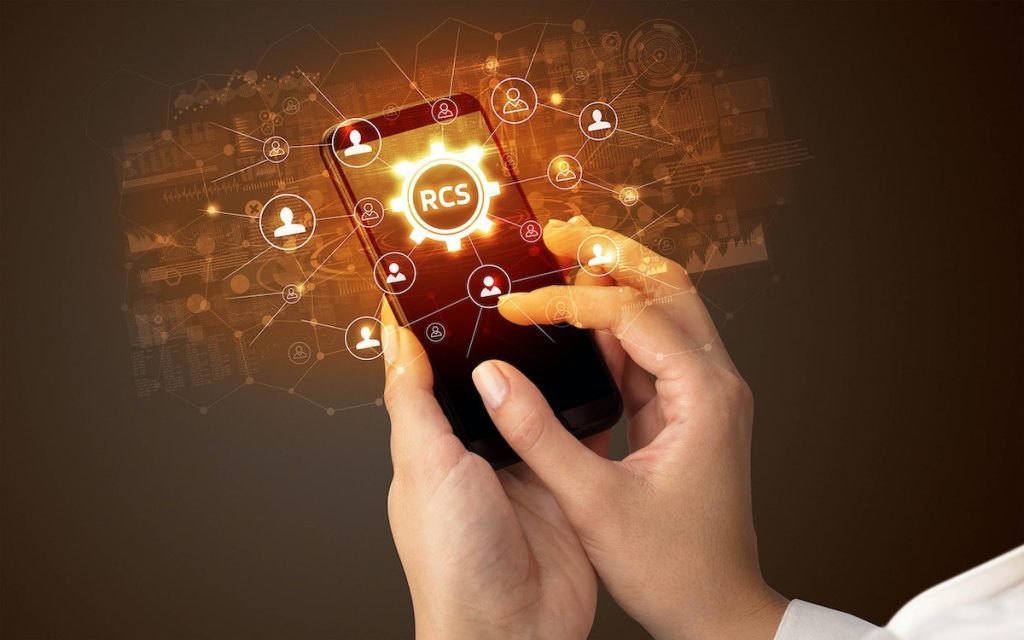iPhones will receive a new way to send messages through the Messages app via a software update “sometime in 2024.” In addition to iMessage and SMS, RCS support is now also available. This messaging protocol is the successor to SMS and can be especially useful for Apple users who want to communicate with friends or family using Android smartphones.
Also interesting for you: RCS is the successor to SMS: what you need to know
What is RCS?
RCS stands for Rich Communications Services and can be described as SMS, but with many distinct features of modern communication platforms such as WhatsApp, Telegram and Signal. These bells and whistles include reading check marks and typing cursors (the three animated dots), but also the option to start group chats and make (video) calls. RCS is also more technically advanced, making it capable of sending images, videos, and audio files in high quality.
RCS seems better in almost every respect, which is why it is often called the successor to SMS. Although the likelihood of SMS actually replacing RCS is slim. This is mainly because RCS (just like the telecom platforms mentioned) only works over WiFi or mobile data. In places without an active data connection (but with network connectivity), SMS remains the only option that ensures this protocol never disappears completely.
Why is Apple adding RCS support?
Although RCS has become increasingly popular and Google has also supported it for several years, Apple has not wanted to launch it for a long time. The fact that iMessage only works between Apple devices is a major asset: it ensures that in countries where apps like WhatsApp are not popular, many users are almost forced to remain in the Apple ecosystem in order to easily communicate with others. When a journalist asked in late 2022 if Apple planned to support RCS because “as an iPhone owner, he can't send videos to my mother's Android device,” Apple CEO Tim Cook responded Curtly: “Buy your mom an iPhone.”
Why is Apple suddenly changing course now? This is not entirely clear, but perhaps it has to do with new European legislation. Under the Digital Markets Law, which will take effect from March 2024, 22 platforms from Alphabet, Amazon, Apple, ByteDance, Meta and Microsoft must adhere to all kinds of rules. For example, chat platforms that fall under this must be “interoperable.” In other words, the ability to collaborate with other chat platforms without restrictions. If it is decided to include iMessage, the company will have to allow Apple users to send iMessages to Android owners. Something Google would like to see happen; The company recently wrote in a letter Call Why iMessage should fall under the Digital Markets Act.
It now appears that Apple is offering this assistance in the hope that the European Union will release the company and iMessage will not have to abide by the imposed rules. After all, Apple can claim to have an interoperable messaging service. An immediate comment can be made: as we will explain later, Apple wants to add RCS as a separate option to the Messages app, thus not integrating it into iMessage. Apple's “own” service thus retains some (small) advantages over RCS and thus communication with Android users is not compromised. definitely It is consistent with the communication between two Apple owners. However, it remains to be seen whether the European Union will agree to this.
How is RCS different from services like iMessage and WhatsApp?
While Google provides automatic RCS for all messages sent through the Messages app on Android devices, Apple has done so Teach them To deal with it differently. Just as SMS and iMessage are separate in the Messages app on iOS devices, RCS should also become a separate option. RCS has more similarities to iMessage than SMS, since iMessage already has the aforementioned bells and whistles of modern apps.
The big difference is that RCS is a standard external protocol. Any manufacturer can integrate this protocol into their smartphones, regardless of the operating system. This is an important distinction from iMessage, as Apple reserves this service exclusively for iOS users; Apple users can only send text messages to Android users via the Messages app, not iMessages. This brings limitations. For example, SMS is by default unable to send photos and videos. Although this has been possible for some time using an additional protocol (called MMS), the quality of these files has decreased significantly due to technical limitations. However, with RCS, it should be as easy to send high-quality photos and (short) videos to Android users as you can now do with your iPhone to Apple users.
Therefore, Apple owners will be able to make (video) calls through the Messages application, leave a voice message, share their location, and start group conversations with Android users. Of course, all of these things have long been possible via third-party messaging services like WhatsApp. This application is fully established in the Netherlands and many other European countries, but mainly in the US, standard messaging services (such as SMS/iMessage) are still widely used and it is not very clear to be able to “apply” everyone. This is the group for whom RCS support will make a big difference.
Finally, an important difference compared to apps like WhatsApp is that RCS does not have end-to-end encryption as standard. This means that the provider can view RCS messages. Google's version of RCS includes e2e encryption, but that's because the company itself added an extension to the protocol. Apple has already announced that it has no plans to do so. The tech giant says it wants the maker of RCS to add e2e encryption as a standard for the protocol. iMessage has end-to-end encryption; Another small asset that Apple hopes is its closed messaging service will remain popular.
Powered by

“Lifelong entrepreneur. Total writer. Internet ninja. Analyst. Friendly music enthusiast.”








More Stories
Dutch IT channel – DoubleYou strengthens security for Apple devices
Nano 8.0 version comes with better shortcut keys for cutting and pasting and a new search function – Computer – News
Bitwarden launches authenticator app for Android and iOS